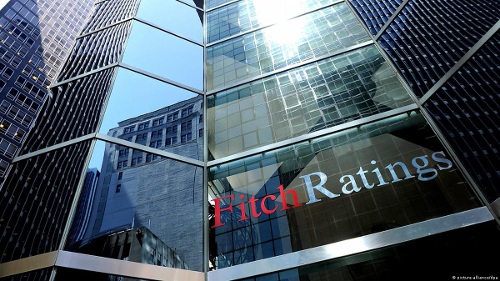Fitch renews Ivory Coast's regional best BB- credit rating

TLDR
- Fitch Ratings maintains Côte d'Ivoire's rating at "BB-" with a stable outlook.
- Côte d'Ivoire has strong growth prospects but faces weak development indicators and reliance on raw materials.
- The government is implementing measures to improve budgetary efficiency and control the wage bill, expecting a reduction in the deficit to 4.4% of GDP in 2024 and 3.5% in 2025.
In its analysis note on the solvency of Côte d'Ivoire published on February 2, Fitch Ratings decided to maintain the country's rating at "BB-" with a stable outlook. While this rating positions Côte d'Ivoire among the best credit profiles in sub-Saharan Africa, it still falls within the category of speculative issuers, despite having "strong growth prospects," according to the American agency.
Although Côte d'Ivoire is considered the locomotive of the West African Economic and Monetary Union (UEMOA), Fitch highlights "weak development indicators and a strong dependence on raw materials."
The agency expresses concern about a deterioration in the budget balance but expects this trend to reverse with government measures aimed at improving budgetary efficiency, controlling the wage bill, and robust growth in nominal GDP. Fitch anticipates a reduction in the deficit to 4.4% of GDP in 2024 and further to 3.5% in 2025.
Key Takeaways
Despite a projected debt rate of 58.5% of GDP in 2024, Côte d'Ivoire's public debt is expected to remain sustainable, supported by solid economic growth. The acceleration of reforms and investments under the National Development Plan (PND) 2021-2025 and the commencement of production from the Baleine gas and oil field in August 2023 contribute to this economic resilience. Fitch predicts a peak in GDP growth at 6.5% between 2024 and 2025, slightly lower than the 6.7% recorded in 2023. Fitch expresses concern about political risk, particularly violence following the 2025 presidential election. While anticipating low-level violence, Fitch believes it won't be sufficient to create instability in the country. Additionally, political and security unrest in the sub-region is not expected to have repercussions on Côte d'Ivoire, given factors such as the lack of a national base for terrorist groups, enhanced effectiveness of Ivorian security forces, and investments in social infrastructure that limit the risk of contagion for the country.

Next Frontier
Stay up to date on major news and events in African markets. Delivered weekly.
Pulse54
UDeep-dives into what’s old and new in Africa’s investment landscape. Delivered twice monthly.
Events
Sign up to stay informed about our regular webinars, product launches, and exhibitions.




